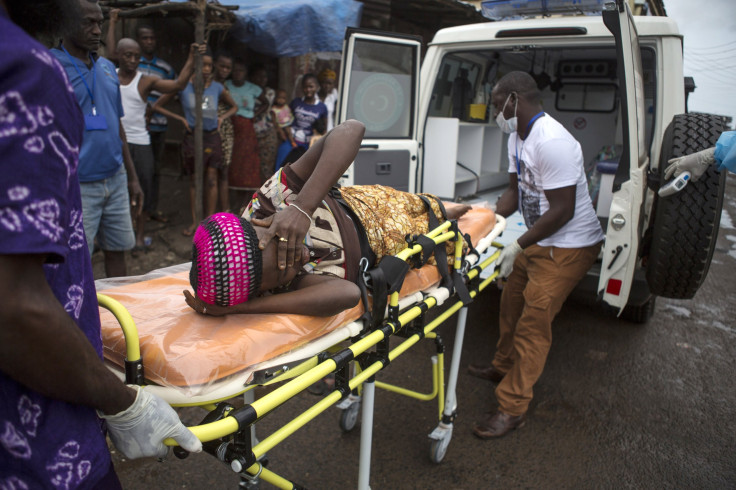Ebola Outbreak: A Third Of Promised International Aid Not Delivered

Only two-thirds of the $2.89 billion in aid promised to Ebola-stricken countries by the international community had been delivered as of the first of the year, a study published Tuesday in the British Medical Journal found. Furthermore, that funding may have come too late to bring the most help to the affected region -- revealing a potential gap in the international aid effort.
Karen Grepin, a professor of global health policy at New York University, used an aid tracking system hosted by the United Nations to find only $1.09 billion of the world's pledges were made available by Dec. 31, 2014 to the region of western Africa where the outbreak was at its worst.
Grepin said funding, while generous, may have arrived too late to help with the bulk of the crisis -- the outbreak started in March and worsened substantially in August and September, but resources didn’t start pouring into the region until October. Grepin said $500 million came toward the end of the year as the outbreak had started to slow. “The problem has not been the generosity of donors but that the resources have not been deployed rapidly enough,” Grepin said.
She said the World Health Organization failed to emphasize the urgent need for such funds to the international community, and more lives might have been saved by an earlier call to action. “Many are going to be wondering why WHO has been so slow to see the seriousness of this,” she said. “I think we'll be asking that question for the months and years ahead. It's not clear why they were so slow but it’s clear to me that they were slower than what the evidence was telling them.”
Generally, governments far outpaced international aid groups and private foundations in giving money to fend off Ebola. The top donors include the U.S. ($900 million), the U.K. ($307 million), the World Bank ($230 million) and Germany ($161 million).
Of the money pledged, Liberia has received $882 million in aid, which is more than any other nation. These contributions tallied to $110,000 for every case of Ebola in the country. In Sierra Leone, however, the amount granted per patient stood at less than half as much at $49,000.
Some of the international aid (about 40 percent) has been sent through organizations to help the region as a whole rather than designated for one particular nation. Those funds have helped set up first-responder efforts by the United Nations and World Health Organization but will not necessarily allow affected countries to bolster long-term resiliency to future outbreaks by making improvements to health care systems.
“If we think that most aid arrives too late to be useful to the outbreak itself, you would really expect to see more going to governments to deal with the long-term vulnerability of the health system,” said Amanda Glassman, director of Global Health Policy at the nonprofit Center for Global Development.
In addition to governments and aid agencies, a few wealthy benefactors have also sent aid -- Paul Allen of Microsoft gave $100 million to the effort and Mark Zuckerberg of Facebook contributed $25 million.
The U.S. had delivered on 95 percent of its promised aid by the time Grepin’s study was completed. In the U.S., this money typically comes from the U.S. Agency for International Development or the Office of International Affairs. “There was a lot of press in countries like the U.S. and U.K. where cases had actually appeared,” Grepin said. “I think there was pressure on countries from their own people to say that they were doing something.”
Glassman added the fact that two-thirds of the promised aid has so far been delivered struck her as positive. She said she wishes there had been data available comparing the delivery of aid for Ebola to that of other crises. She would also like to see more information on how the aid money was used to gauge whether the funds were truly effective. “The international community doesn't have something in place to say, let's look at how funds are used and how we can use them better next time,” she said.
Grepin said the aid tracking system she used for her study did not count certain types of aid that have been made available, including zero-interest loans offered by the World Bank and medical teams sent to afflicted countries from China.
The U.N. Office for the Coordination of Humanitarian Affairs has stated $2.27 billion was needed to halt the Ebola outbreak. Based on that estimate, international donors have pledged more than enough for the fight -- so long as they deliver.
© Copyright IBTimes 2024. All rights reserved.





















